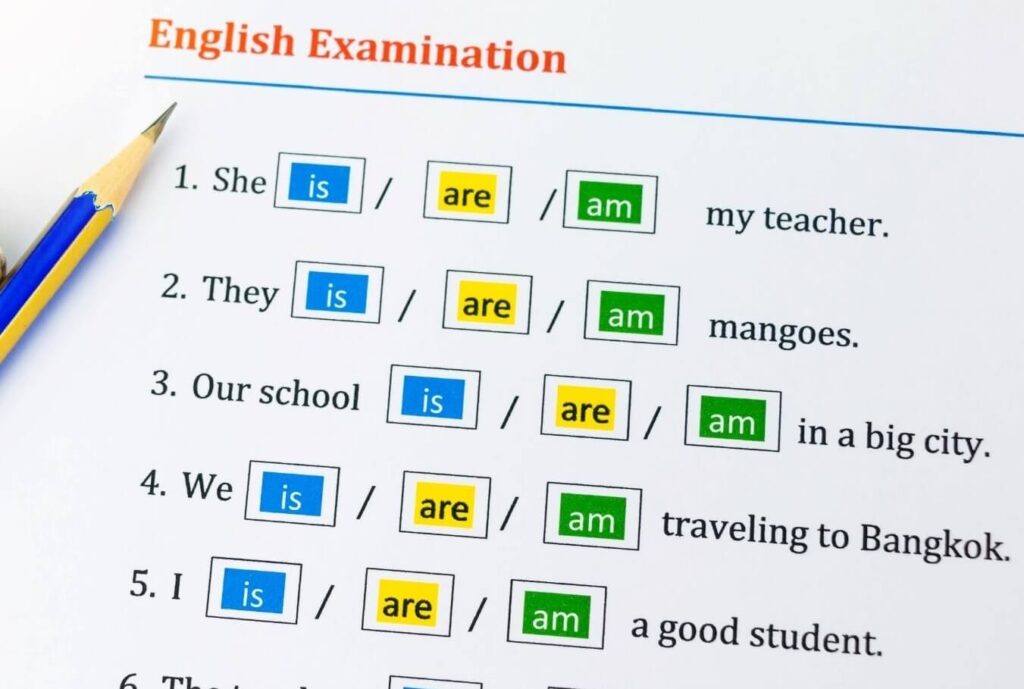
Quick Overview
Functional Skills English qualifications demonstrate the ability to use English effectively in everyday life, education, and work. They focus on practical skills in reading, writing, speaking, and listening, helping individuals communicate clearly and confidently in real-world situations. These qualifications are widely recognised across the UK and are essential for many jobs and further learning.
This blog will walk through:
✅ What Functional Skills English qualifications are and their real-world importance
✅ The structure of the exam including reading, writing, and speaking/listening sections
✅ The minimum pass marks and separate pass requirements for each section
✅ Practical skills assessed and common challenges candidates face
✅ Effective strategies and preparation tips for each exam component
✅ Available study materials and resources to support learning
✅ The benefits of passing Functional Skills English for career and everyday communication
To pass Functional Skills UK English certificates are a basic requirement for people who wish to communicate efficiently for self, educational, or work requirements. This article simplifies the conditions and requirements to qualify for Functional Skills English in the UK, looking at examination sections, minimum marks, and preparation tips.
Knowledge of Functional Skills in English
Functional Skills English qualifications are practical and bear significance in the real world as well as in the workplace and other levels of education. These qualifications are also issued in different grades with Level 2 most sought after being equal to a GCSE Grade 4 or Grade 5 which is C grade.
Examination Structure
Functional Skills English examination consists of three broad sections as follows:
Reading
- Aim: This section seeks to determine the concern of the candidate as far as comprehension, analysis, and extraction of relevant information from written materials.
- Nature: This section includes questions from other real-world materials such as articles, advertisements, and emails.
- Focus: Tone, purpose, and meaning.
Writing
- Aim: This section assesses the ability of an individual to communicate effectively in writing.
- Nature: Tasks involved include writing letters or emails and writing reports.
- Focus: Spelling, grammar, punctuation, structural organization and coherence.
Speaking, Listening and Communication
- Aim: The main focus here is to assess the oral skills of the student in the context of discussions and presentations.
- Nature: Tasks may involve group discussions, role-plays, or individual presentations.
- Focus: Clarity, fluency, and engaging speech with correct response.

Pass Requirements
To pass functional skills UK English exam candidates must have:
Pass all three components
- Competently passed English means, a person is required to have passed each section of the English test separately, unlike maths which has a combined grading system.
- Thus, it’s now clearer that an overall qualification is divided into 3 segments where each test acts as a prerequisite. Failing any one portion means there is no chance of receiving the overall qualification, nevertheless, there are components that allow retaking tests.
Achieve the Minimum Marks for Passing
- However, the body distributing marks reserves the right to set a gradation and this usually falls somewhere between 55% to 65% which more or less remains close to the average marks for a pass, for obvious reasons the awarding body and the specific exam taken are strong determining factors.
- A reading examination with a maximum achievable mark of thirty will easily require participants to have a scoring range of between eighteen and twenty. Similarly, for the 40 marking Writing paper, the passing grading would be around 24 -26
Practical Skills
- Reading: Identify main ideas, distinguish relevant information or compare two different texts, and identify the audience, desired outcome, or message.
- Writing: Ensure the writing is clear with organized ideas and with minimum errors.
- Speaking/Listening: A person can speak well in discussions and give relevant presentations.
Awarding Bodies
Regardless of the varying assessment styles, the pass requirements are generally the same among most awarding bodies which include the following: Pearson Edexcel City, Guilds, NCFE. Looking into the specific requirements that your exam board has set for your test would offer you accurate information about the exam.

Challenges and How to Overcome Them
Challenge 1: Balancing Components
Everyone knows that all three sections are crucial in order to pass the test so failing to attempt any of these components leads to a poor result.
Strategy:
Study schedules should be proportioned such that reading, writing, and speaking/listening preparation is given equal time.
Challenge 2: Writing Accuracy
Many candidates fail in writing due to confusion in grammar, punctuation, and spelling.
Suggestion:
Try to write more every day and use Grammarly and other similar tools. It is important to break up your writing into paragraphs rather than just a long paragraph.
Challenge 3: Speaking Anxiety
Speaking tasks are considered challenging by a lot of students.
Recommendation:
Talk to your friends, peers, or tutors about the topic and make a video of you doing it to figure out what can be done better. Think of why the topic is of interest to people so you can debate it effectively.

Better Preparation Tips
Reading Component:
- Try to skim and scan the text to find the main points to save time.
- Look into writing of various kinds such as opinion or special instructional texts.
- Work with past papers to practice question types and their formats.
Letter and Essay Writing tasks:
- Letters, emails, and reports should be written with the proper structure of an introduction, body and conclusion.
- Try to correct spelling and punctuation, and make sure the grammar used in the content is accurate as well.
- Do set a timer on your writing tasks as they may be required in an exam.
Speaking and Listening:
- Try to join discussions and give presentations to build some confidence.
- Try to practice summarizing your points rather than just responding to the first view that you hear.
- Practice for your exams by engaging in some childcare role plays while pretending you are the child.

Useful Study Materials
- Working Documents: Look for PAST papers through the exam mountain sites which are particularly useful in aiding one’s sights on question settings and answering them with specified time.
- Remote Resources: Functional Skills English can be learned for free through platforms such as BBC Bitesize and Skills Workshop.
- Private Tutors and Lessons: Find a credible tutor or classes to take a course and get help, with practice, on Functional Skills.
- Software and Commented Clips: There are numerous apps that help in expanding knowledge on grammar, vocabulary, and even comprehension of a text.
Importance of Successfully Completing Functional Skills English
- Job Improvements: Essential functions for employees in many firms that involve dealing with customers.
- Career Routes: A lot of Employers require this form of skills to be able to undertake more advanced jobs and even placements.
- Daily Activities: Email composition, talking, and reading are just a few tasks that all classes can assist in completing.
Final thoughts
Functional Skills English is all about determined thinking, hands-on practice, and working hard. Knowing how the assessment has to be taken, and what the passing requirements are, is crucial so that you approach the test with confidence as it indeed knows how to test you. Don’t forget to score your weak parts effectively and balance each skill for effective solving of the activities given. Good luck!